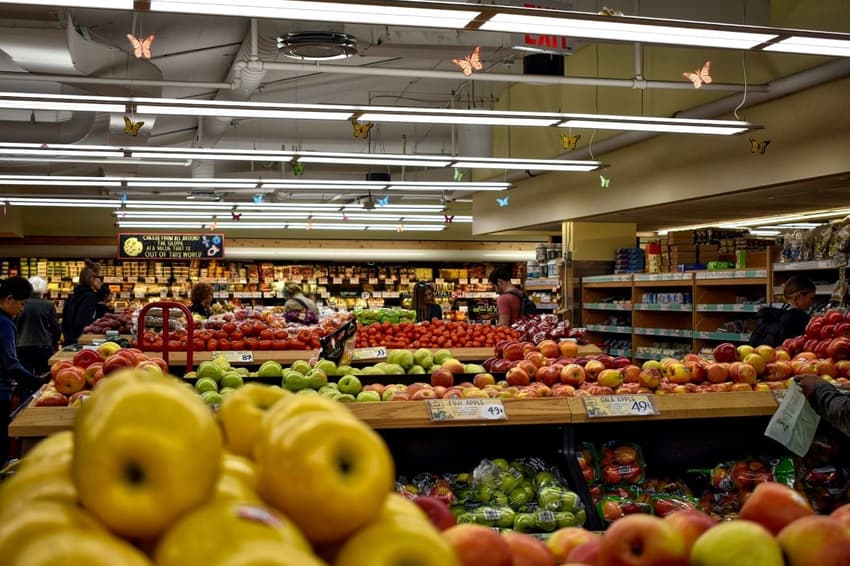Why food price increases in Norway will become harder to spot

Experts believe that price rises in Norwegian supermarkets will happen more dynamically in the future, and consumers will need to pay better attention to changing prices.
This year has seen supermarkets buck the trend of adjusting prices across the board twice a year. Typically, supermarkets would change the cost of their products at the beginning of February and then at the start of July following negotiations with suppliers.
After no significant change in prices on July 1st this year, it appears that Norwegian supermarkets have more or less abandoned the old system.
"Even now, we have not seen the price increase in the shops. This is partly due to the fact that it was not expected that the purchase prices would increase so much now on July 1st, but also to Rema 1000's initiative to negotiate more continuously with suppliers. It is still uncertain how many of the contracts have been renegotiated," Øystein Foros at the Norwegian Business School told the Norwegian newswire NTB.
Foros added that there are signs that the cost of groceries changing on certain days of the year has ended and that prices will be more fluid moving forward.
"If the chains move away from this system, shop prices will probably react more quickly when raw material prices change, and we will see a more dynamic change in prices," he said.
The old system attracted criticism from the government and consumer watchdogs earlier this year after supermarkets publicly announced rough price increases. However, the rises never materialised in February after Kiwi chose to freeze the price of more than 100 items.
Other supermarkets followed suit, and the competition on keeping prices locked didn't end until later in the spring when prices began slowly rising after Easter.
Odd Gisholt, an expert on groceries and professor at the Norwegian Business School, told NTB that the new system meant things were more uncertain for households.
"Times are more uncertain now, and customers must take care of themselves. Rema 1000 says they will keep their prices steady or perhaps lower them, and they are offering discounts on a number of items. Coop also says that they will lock the prices of 100 important goods," he said.
He added that chains would only likely compete on the price of a smaller selection of goods, while other products will see a larger variation in prices.
"Consumers must be more careful, have all (the) loyalty cards, and keep up with the times," the professor said.
Comments
See Also
This year has seen supermarkets buck the trend of adjusting prices across the board twice a year. Typically, supermarkets would change the cost of their products at the beginning of February and then at the start of July following negotiations with suppliers.
After no significant change in prices on July 1st this year, it appears that Norwegian supermarkets have more or less abandoned the old system.
"Even now, we have not seen the price increase in the shops. This is partly due to the fact that it was not expected that the purchase prices would increase so much now on July 1st, but also to Rema 1000's initiative to negotiate more continuously with suppliers. It is still uncertain how many of the contracts have been renegotiated," Øystein Foros at the Norwegian Business School told the Norwegian newswire NTB.
Foros added that there are signs that the cost of groceries changing on certain days of the year has ended and that prices will be more fluid moving forward.
"If the chains move away from this system, shop prices will probably react more quickly when raw material prices change, and we will see a more dynamic change in prices," he said.
The old system attracted criticism from the government and consumer watchdogs earlier this year after supermarkets publicly announced rough price increases. However, the rises never materialised in February after Kiwi chose to freeze the price of more than 100 items.
Other supermarkets followed suit, and the competition on keeping prices locked didn't end until later in the spring when prices began slowly rising after Easter.
Odd Gisholt, an expert on groceries and professor at the Norwegian Business School, told NTB that the new system meant things were more uncertain for households.
"Times are more uncertain now, and customers must take care of themselves. Rema 1000 says they will keep their prices steady or perhaps lower them, and they are offering discounts on a number of items. Coop also says that they will lock the prices of 100 important goods," he said.
He added that chains would only likely compete on the price of a smaller selection of goods, while other products will see a larger variation in prices.
"Consumers must be more careful, have all (the) loyalty cards, and keep up with the times," the professor said.
Join the conversation in our comments section below. Share your own views and experience and if you have a question or suggestion for our journalists then email us at [email protected].
Please keep comments civil, constructive and on topic – and make sure to read our terms of use before getting involved.
Please log in here to leave a comment.